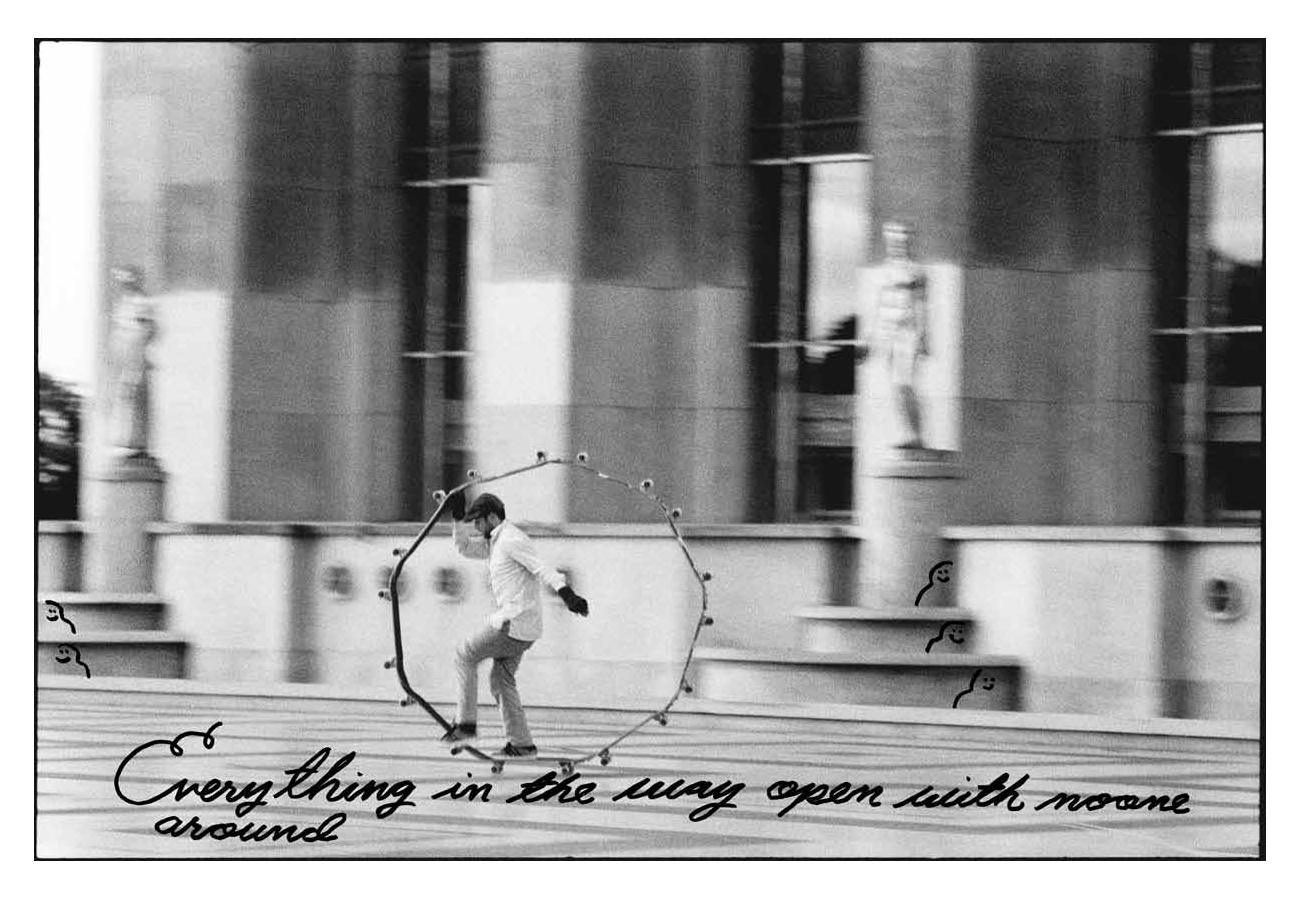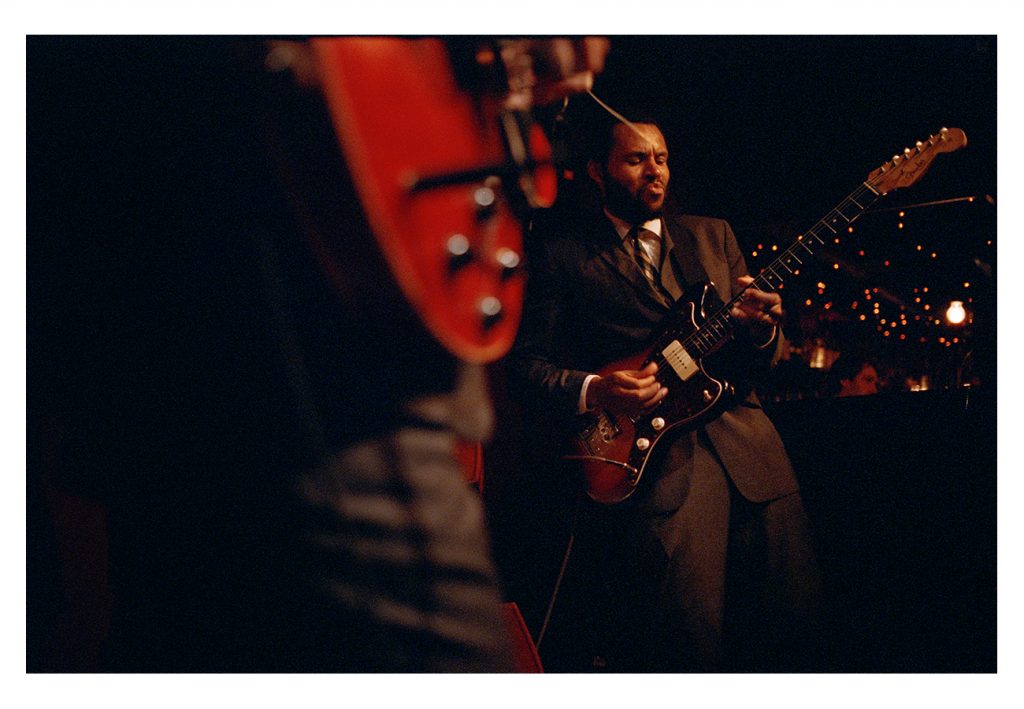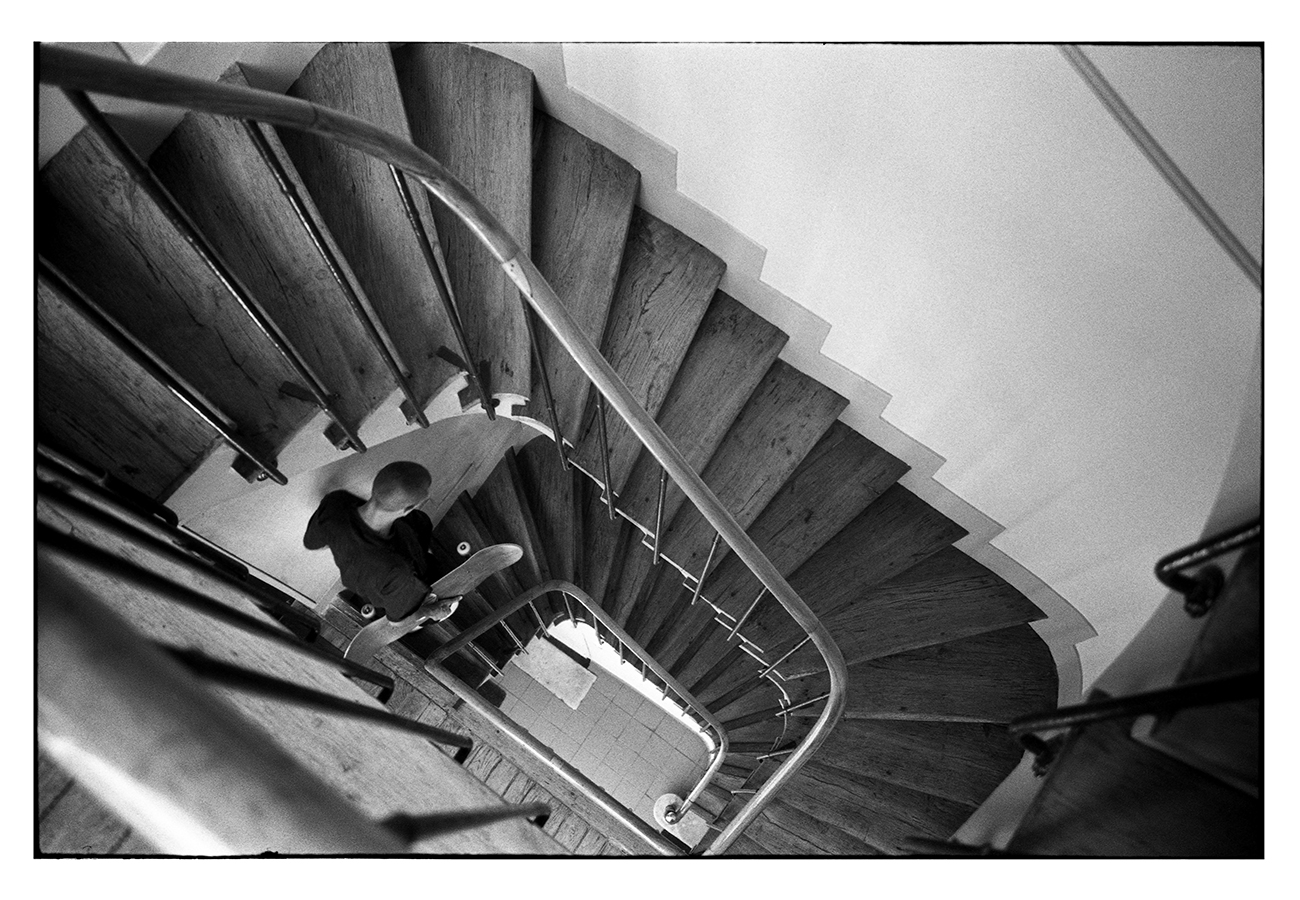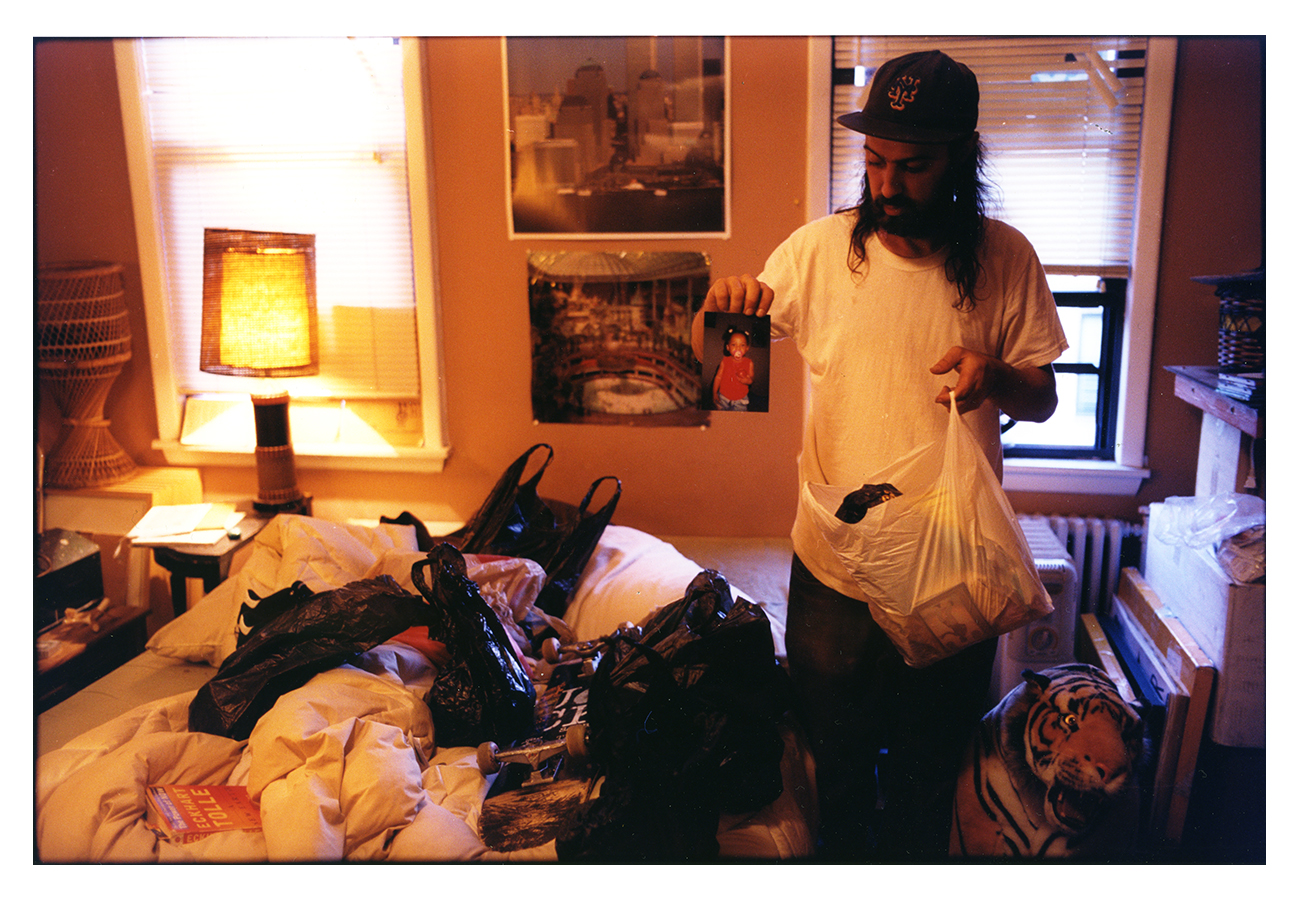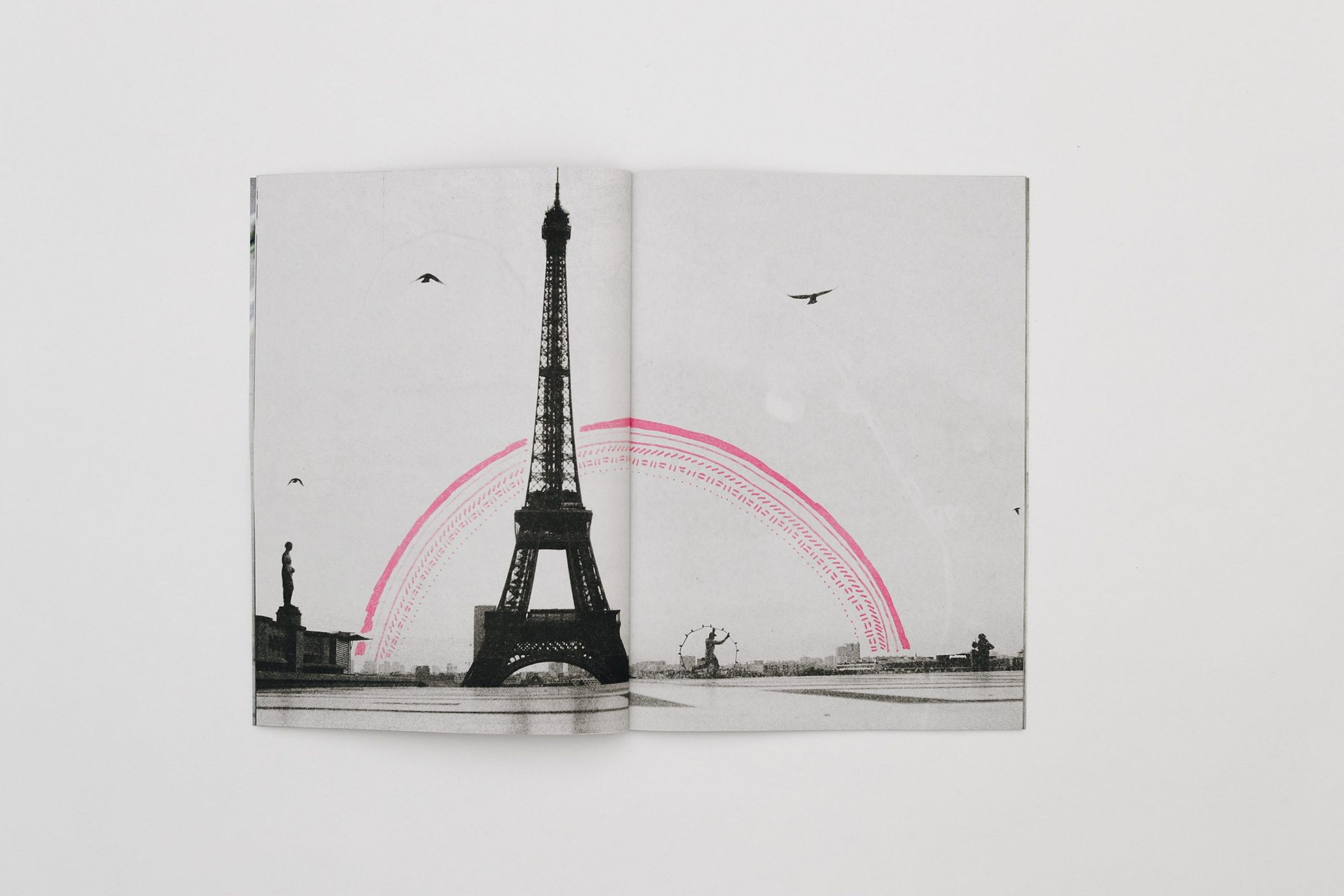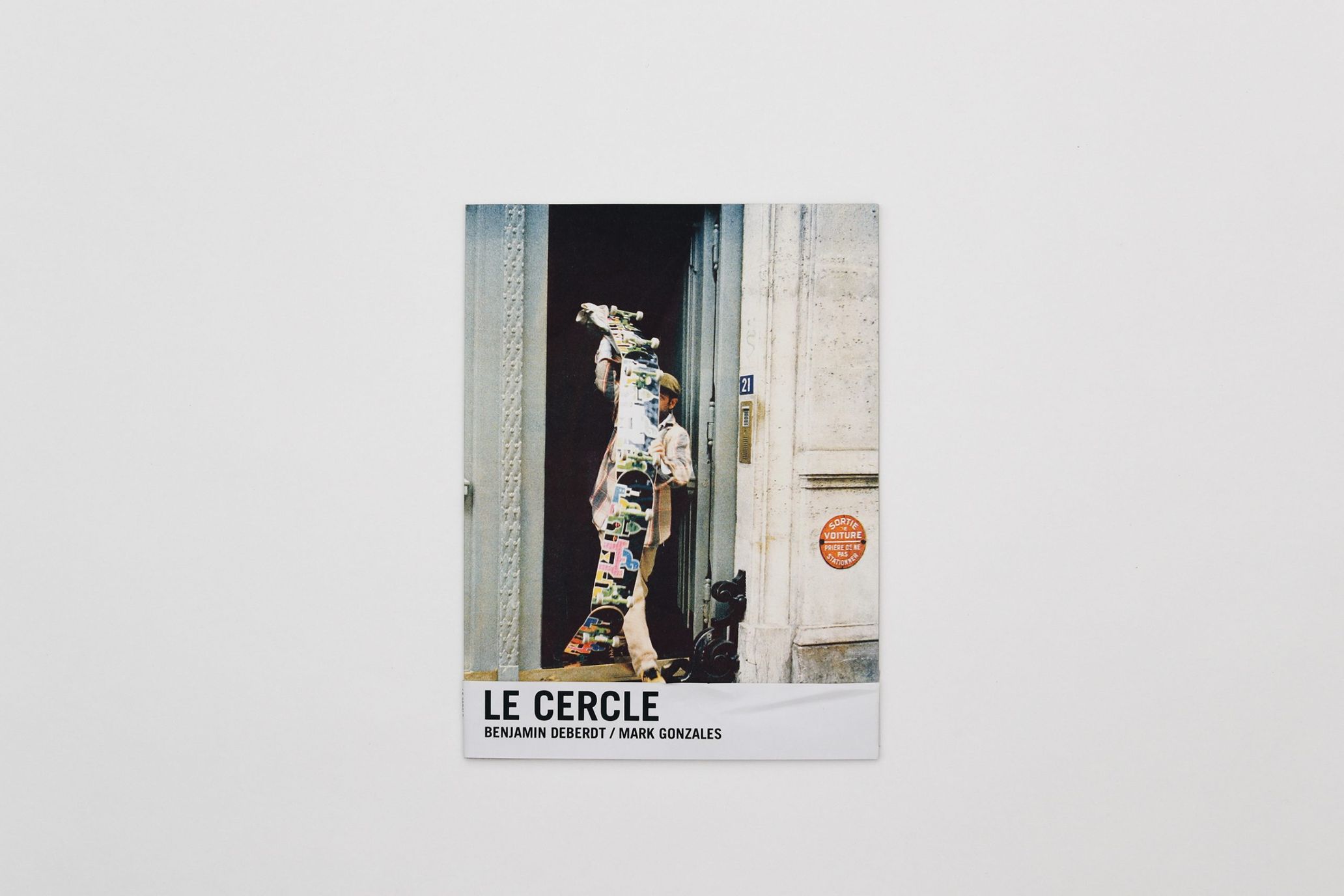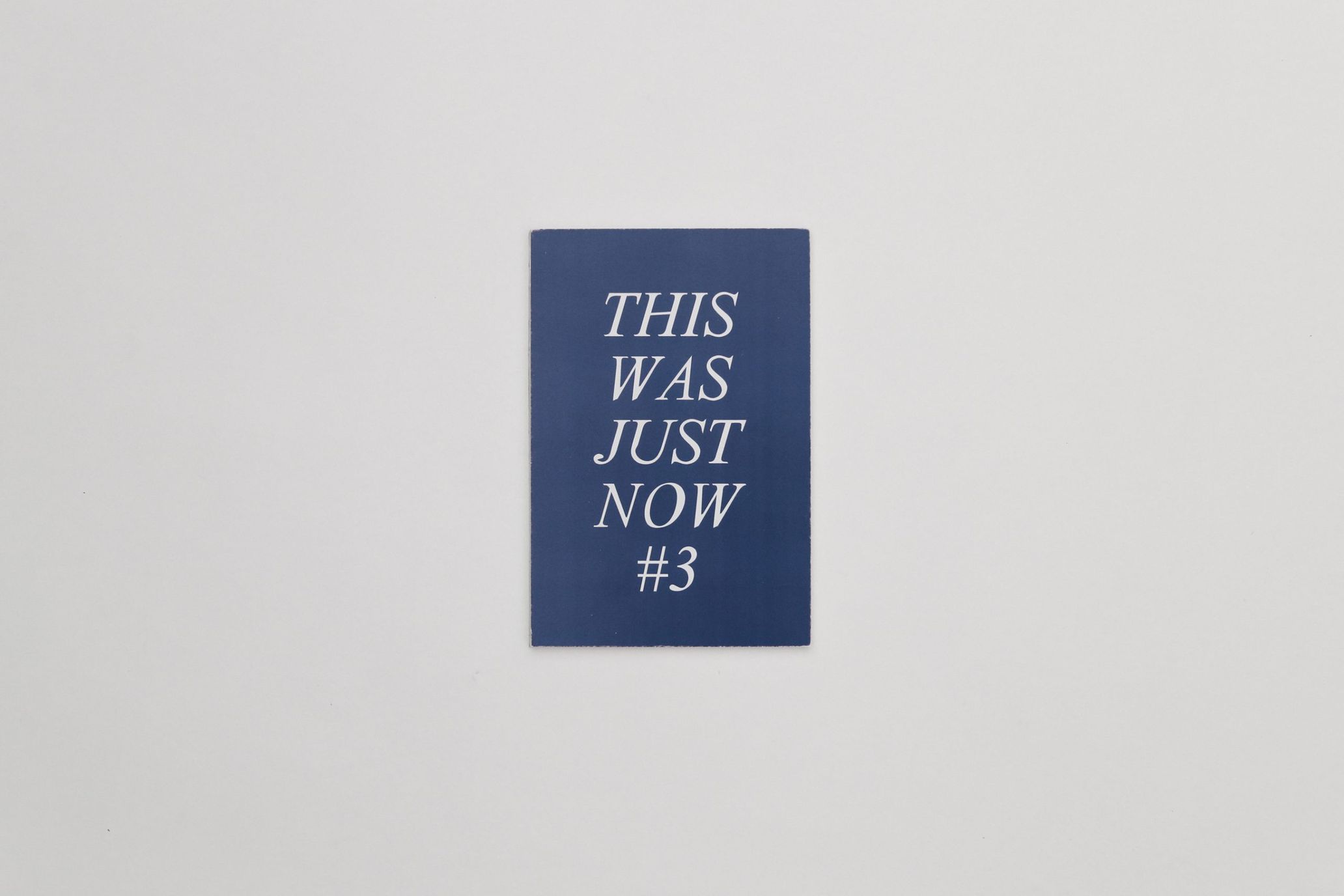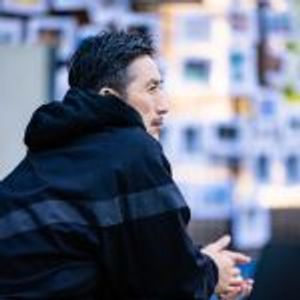In today’s world, where coronavirus dominates everything, the significance and beauty of photography haven’t changed. One photo alone can recount memories and communicate new information, all while reflecting the artist’s message and personal style. I’d like to introduce skateboard photography and those that continue to take such photos. If one were to describe his project, it might be called something of a “skateboard diaspora.” I want to show that although many things separate our world, we can all be united by skateboarding.
Our protagonist today is Benjamin Deberdt. He has been taking photos in Paris for over 30 years now. Whenever he’s out and about, young skaters of all genders greet him with a “Hey O.G.!” He is an icon around here. There’s so much I want to touch on, from his gentle, philosopher-like demeanor to his love for gourmet, as shown in his habit of talking about a different restaurant’s dish while having a meal. But this time, the focus is on his skateboard photography.
What are Parisian stereotypes?
Greystone buildings. Horse chestnut trees on the side of the road. Light rain and blue skies. The sound of magnificent church bells. Pretty display windows and chic people. Endless conversations in French. Paris is abundant in art, history, and culture, and people from various walks of life keep the streets alive — photographer Benjamin Deberdt is one such person who lives in this city.
As he eats a bowl of beef stew and he says, “This is a staple in French comfort food, and this place has the best stuff in town” and then talks about how an African meal he had the other day was delicious. The way he speaks about other dishes from a different establishment is Parisian. When I tell him I like the film, Amélie, he tells me it is too fantastical for his taste, only to go into the setting for the film, Montmartre and the history behind Sacré-Cœur Basilica, which rests on top of Montmartre. In the middle of his rant, he stops himself saying, “Too much, too much!” This self-deprecating quality is Parisian too.
He loves the authentic streets of Paris and chooses non-touristy locations where nothing has changed to shoot skaters. Benjamin has an imaginative and flexible ability to make something that was once a countercultural movement into his subject. By now, skateboarding has become a universal language, but it was still underground in the 80s and 90s. Benjamin has continued to capture Paris’ skate scene from that era, and that makes him a legendary documentarian.
To love photo labs of the past and present
The 90s, Tokyo. It feels like it was just yesterday when I would casually talk about photo labs with other photographers: “Let’s select which photos we want the folks at Create in Shibuya to print out!” “Can you go pick up the photos at Chromart in Aoyama at 8 pm?” “Horiuchi finishes printing within two days.” But we live in the digital age now. It’s become less common to see photo developers place contact sheets on top of a light table, look into a magnifying glass, and use a dermatograph pencil to select which photo to print. When a new building is built, it’s hard to remember what was there before. In the same way, I can’t seem to remember exactly with whom I had lively conversations regarding photo labs, and this saddens me.
Amidst all this, Benjamin is a photographer that has stuck to shooting on film and analog printing. Even if you use three, four rolls of film to shoot skaters, it’s a challenge to capture the right shots. In this sense, digital would work better because you can press the shutter button as many times as you want, and you could also check the shots on the spot. On this matter, Benjamin says, “Digital can be good, and this goes to Instagram too. Young photographers and skaters understand the value of things that disappear very well. But in Paris, skaters in their 20s also recognize the importance of books and paper. They are preservable as records. It’s interesting.” This makes Benjamin the O.G. great. Just by doing what he thinks is good and leaving behind beautiful work, he has successfully expanded the choices young creative people could choose from. But he doesn’t ever push his ideals onto the young generation. I think it’s touching to see his eternal love for photo labs and his bond with the photo developers.
Even perforations and the waste thread on frames are special
When I walked into a restaurant in Paris one day, I saw framed photos hanging on the wall of the café and the back of the bar, and recognized them as Benjamin’s photos, which he printed at a photo lab. Back in Tokyo, I had almost forgotten about photo labs. Currently, there are around five big photo labs in Paris, but the only one that handles analog printing is Atelier Publimod, which Benjamin has been a patron of for years. According to the owner, most of their sales came from fashion and advertisement photos in the past. But now skate photos and street photos are in the top three. And the majority are Benjamin’s film photos. As I was waiting for them to develop my photos, chatting away with a cup of coffee in one hand, I noticed that most of the customers handing in their negatives were young people. If you think about Le Cercle, a large-scale photograph of Benjamin’s printed at the lab with Mark Gonzales’ handwriting on it, they could have only achieved it with physical paper. Of course, people would naturally want to preserve their images on paper once they have seen something of that caliber.
There’s an anecdote that springs to mind. It must have been around ten years ago when I spotted a loose waste thread on the black frame of a photo that Benjamin had sent me. I felt like it wasn’t on purpose, as it seemed like it had mistakenly gotten on the photo in the darkroom. It’s common practice to retouch such a photo if it were digital. I asked him what I should do about it, and he laughed back at me: “You can leave the waste thread. It’s proof that I printed it myself. Isn’t it like my signature?” He has a meticulous side, where he would stay up all night long if the contrast or composition of a photo doesn’t match the image he has in his head. But he also has a sense of humor. You can say that his photography is a hassle, in a good way. He has a strict and fastidious side while also possessing a freewheeling and fun quality, and this dual nature is like the city of Paris. I like how getting rid of some loose thread from a photo he worked hard to print was a hassle for him and how he chuckled about it being an element that made his photo special.
Paris is on lockdown because of coronavirus, but the creativity doesn’t stop
2020, Paris during the pandemic. There were two impactful occurrences in the skate scene. Both involve Benjamin. The first one was in March when Paris experienced its first lockdown. There was an increase of homeless people in The Place de la République, Paris’ hottest plaza spot, and day after day, over 100 people lined up to receive food. Everything was closed, including the photo lab when Benjamin got an idea. As someone that has a chronic illness, it was extremely risky for him to leave the house. Professional skater and writer Scott Bourne went to Benjamin’s apartment building to borrow a roll of film, which was becoming increasingly difficult to get. Benjamin put the film inside of a tin can and threw it outside of the window. When he tossed the tin can down to Scott, Benjamin wondered how he could come up with a spread using analog film photography and how he could create it with other people.
On her way to the grocery store, Benjamin’s wife, Maria, would hand a finished roll of film used by either Benjamin or Scott over to Paul. And then Paul, a professional skater/photographer, would develop them in his house. After that, Maria would stop by to bring the photos home, where Benjamin would scan them. That’s how the article on Sb Skateboard Journal, a Japanese skate magazine, came about during lockdown.
This spark of creativity triggered a second incident. 16 artists active in Paris such as Benjamin, Scott, Paul, Sergej Vutuc, Gorge Booth Cole, and Oliver Tavu Ente created a zine called “No Contact Sheets.” The project was created by each participant passing the film roll down to the other person in an age where people can’t have as much physical contact. I think they were able to pull this off because photographers and skaters churn out creativity instead of being caught up in it.
To believe in something and to have a passion for something. This is how a positive attitude and artistic endeavors are born. The state of things is unstable because of coronavirus, but the global event, the Olympics, is fast approaching. Today, it’s not the cities that are being asked to change; it’s the people themselves. Benjamin had an epiphany during these times. People look at analog photography as something that’s old news, but it’s something that can create something creative and positive, regardless of the era. What Benjamin is doing isn’t immediate, but the things he says and does retain the same essence, even if a year or five years passes. And all the while, he gives a little chuckle, saying, “Too much! Too much!”
Paris isn’t the only place that’s going through a hard time right now. Tokyo, London, New York, and everywhere else face adversity too. But as I sit here editing this in a slightly distant place, I could feel Benjamin’s steady creativity and optimistic photos positively affecting me. He isn’t the kind of photographer that does new, grand things. Rather, he’s a photographer and documentarian of the authentic type. And he’s a humble O.G. that the kids look up to. I like that about him. A lot.
“Le Cercle” ©Benjamin Deberdt
Mark Gonzales is a celebrated skater and artist. Benjamin documented Mark creating art in Paris on film. Together they created this piece, where Mark Gonzales directly drew on top of Benjamin’s large-scale photo. It’s very Benajmin-like for him to work quietly alongside Mark, who has a serious, diligent, and nervous side to him.
“This Was Just Now” ©Benjamin Deberdt
To remain creative no matter what the circumstances are with your body, family, or surroundings. That is Benjamin’s belief. On one hand, his work involves shooting a lot and running an online magazine, and on the other, he periodically releases his photo series, “This Was Just Now.” He is currently working on a photo book documenting his time in New York City. He also has rare photos of the late Keith Hufnagel in his collection.
Benjamin Deberdt
Benjamin Deberdt is a photographer living in Paris, and his medium of choice is an analog print via film photography. He loves the photo lab in his city. Simultaneously, he works as a skateboard editor for the online media platform, Live Skateboard Media, and continues to document the lively skate scene in Paris.
Instagram: @benjamin_deberdt_photography
Translation Lena-Grace Suda

